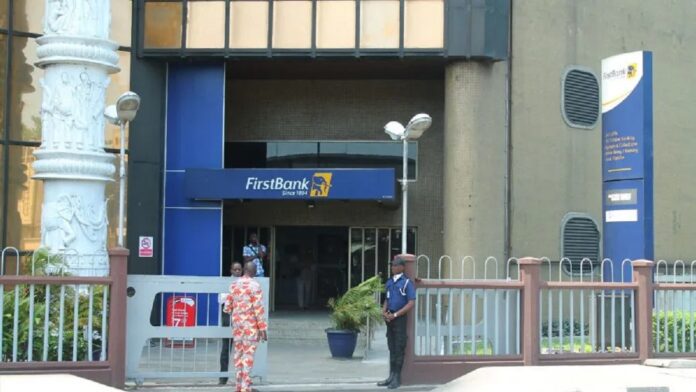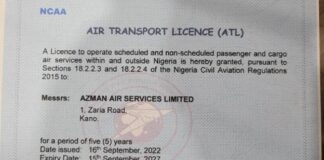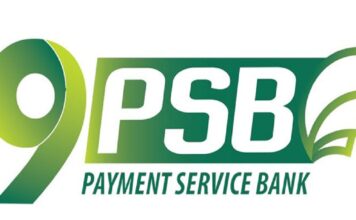FBN Rating Upgraded after Corporate Governance Irregularities Fix
Following a deliberate effort to reclaim its market position, First Bank of Nigeria (FBN) Limited has been rated higher despite uncertainties in the macroeconomic environment in Nigeria.
In a rating note, Fitch upgraded FBN Holdings Plc and First Bank of Nigeria’s long-term issuer default ratings to ‘B’ from ‘B- with an upgrade to their respective viability rating – an indication of the creditworthiness of one of the strongest financial services supermarkets in Nigeria.
The global rating firm also accorded both entities stable outlooks, citing well-addressed corporate governance irregularities, healthy balance sheet position and strong franchise.
“…an upgrade to the financial services companies’ viability ratings to ‘b’ reflects well addressed corporate governance irregularities publicly raised by the Central Bank of Nigeria (CBN) in April 2021”, the rating note stated.
The bank’s longstanding related-party exposures have been addressed, thus risks to capitalisation have receded, according to Fitch which explained that the situation is helped by strong internal capital generation since the irregularities were raised.
“…the two related-party exposures highlighted by the CBN, which included equity and credit exposures to two companies of whom FBNH’s previous chairman was also chairman, have largely been disposed of and repaid”.
Fitch said in the report that it understands from management that FBNH and FBN have not been subject to penalties in relation to irregularities raised by the Central Bank of Nigeria in April 2021 and no further irregularities have been raised. It said FBN is the third-largest bank in Nigeria, representing 11% of domestic banking-system assets at the end of the financial year 2021.
According to the rating note, a strong franchise supports a stable funding profile and a low cost of funding. Revenue diversification is strong, with non-interest income representing 48% of operating income in 2021.
However, the ratings noted that the bank still has material single-borrower credit concentration. It said the 20-largest loans represent 157% of Fitch Core Capital (FCC) at the end of the first half of 2022.
The bank’s book shows that Oil and gas exposure at 30% of net loans in 2021 is higher than the banking-system average and weighted towards higher-risk upstream and services sub-segments. However, following balance sheet cleaning efforts, the lender’s asset quality has improved, a development that follow the successful clean-out of legacy loans last year.
In the rating note, Fitch said FBN’s impaired loans –the Stage 3 loans- the ratio has declined significantly to 5.6% as of the first half of 2022 from a peak of 25% at the end of 2018 as a result of sizeable write-offs, successful restructurings and recoveries and, more recently, the flattering effect of strong loan growth.
On the other hand, the bank’s stage 2 loans remain significant at 15% of gross loans as of the first half of 2022. In the rating note, Fitch indicates an expectation this will decline as oil and gas exposures return to performing status.
FBNH delivers healthy profitability, as indicated by an operating return on risk-weighted assets (RWAs) averaging 2.6% over the past four years, according to the rating note. It printed at 4% in 2021, underpinned by large recoveries on a previously written-off loan.
The bank’s earnings benefit from a low cost of funding and strong non-interest income but are constrained by a high cost-to-income ratio and significant loan impairment charges (LICs) in recent years.
FBN’s cost-to-income ratio hit 74% in 2021, according to its financial performance scorecard reviewed by MarketForces Africa while its funding profile improved.
At the end of the first half of 2022, FBNH’s FCC ratio settled at 19.1%, Fitch said it has been on an upward trend in recent years, as a result of strong internal capital generation, which has been influenced by a modest dividend payout ratio.
The rating note stated that FBN’s impaired loans net of specific loan loss allowances has declined as a share of FCC in recent years to a moderate 12% as of the end of the first half of 2022.
Pre-impairment operating profit is sizeable which printed at an annualised 5.1% of average gross loans in the first half of 2022, providing a reasonable buffer to absorb loan impairment charges without affecting its capital.
Overall, FBN’s funding profile is noted to have been stable. FBN’s customer deposit base which settled at 76% of total funding at the end of the first half of 2022 comprises a high share of retail deposits.
At the end of the first half of 2021, the bank’s retail deposit contributed 64% to the funding profile. Also, current and savings accounts (CASA) improved to 81% in the first half of 2022, supporting funding stability and a low cost of funding.
In addition, depositor concentration is considered to be fairly low while liquidity coverage is comfortable in local and foreign currencies.
#FBN Rating Upgraded after Corporate Governance Irregularities Fix#




























































































